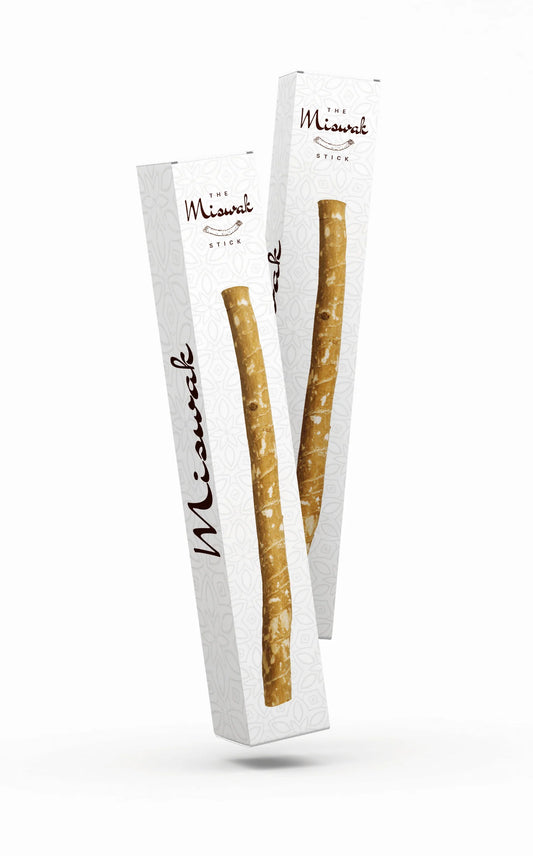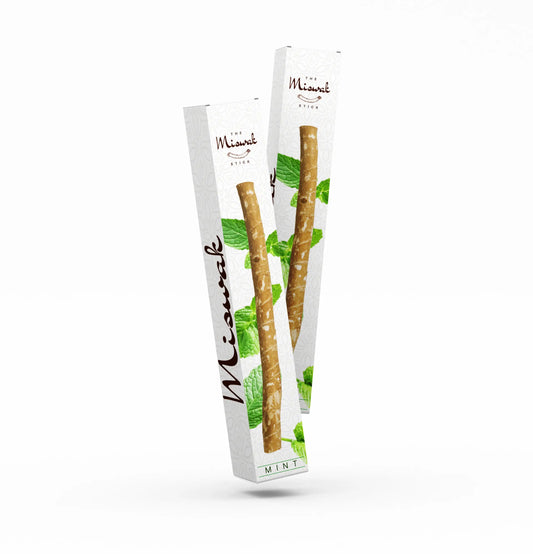In an era where sustainability is becoming a priority, people are seeking eco-friendly alternatives to everyday products. One such alternative in oral hygiene is miswak, a natural toothbrush derived from the Salvadora persica tree. Unlike plastic toothbrushes that contribute significantly to environmental pollution, miswak is biodegradable and chemical-free. But is miswak truly a sustainable toothbrush? Let’s explore its environmental benefits and effectiveness.
The Environmental Impact of Plastic Toothbrushes
Conventional plastic toothbrushes are made from non-biodegradable materials such as polypropylene and nylon, contributing to landfill accumulation and ocean pollution. According to a scholarly article published in the Pakistan Oral & Dental Journal, plastic toothbrushes are a major source of plastic waste worldwide. Their production requires fossil fuels, and their disposal adds to the global plastic crisis. Given that millions of plastic toothbrushes are discarded every year, the search for a sustainable alternative has become crucial.
Why Miswak is a Sustainable Alternative
Miswak stands out as an eco-friendly substitute for traditional toothbrushes due to several key reasons:
- 100% Natural and Biodegradable: Miswak is a twig obtained from the Salvadora persica tree, making it a completely natural product. Once used, it decomposes without harming the environment.
- Minimal Processing and Waste: Unlike plastic toothbrushes, which undergo complex manufacturing processes, miswak is harvested, trimmed, and packaged with minimal processing. This significantly reduces energy consumption and waste production.
- No Need for Toothpaste: Miswak contains natural antibacterial and cleansing agents, eliminating the need for toothpaste. This further reduces plastic waste associated with toothpaste tubes.
Oral Health Benefits of Miswak
Beyond sustainability, miswak is effective in maintaining oral hygiene. The same scholarly article from the Pakistan Oral & Dental Journal highlights that miswak has antimicrobial properties that help combat oral bacteria and reduce plaque buildup. Research also indicates that miswak users experience a significant reduction in gum inflammation and bleeding, comparable to those using conventional toothbrushes.
Additionally on benefits of miswak, it naturally contains fluoride, silica, and essential oils that promote healthier teeth and gums. With regular use, it helps prevent cavities, bad breath, and gum disease, all while being an eco-friendly alternative.
The Cultural and Historical Significance of Miswak
Miswak has been used for centuries in various cultures, particularly in the Middle East, Africa, and South Asia. It is deeply rooted in Islamic traditions, with many people using it as a part of their daily oral hygiene routine. Unlike modern toothbrushes, which have only been in existence for about a century, miswak has a long history of proven effectiveness.
The Future of Sustainable Oral Care
As the world shifts towards sustainability, using miswak as an alternative to plastic toothbrushes can have a significant positive impact on the environment. Its biodegradability, minimal processing, and effective oral health benefits make it a superior choice for those looking to reduce their carbon footprint while maintaining optimal dental hygiene.
About The Miswak Stick
At The Miswak Stick, we are dedicated to providing high-quality miswak sticks sourced responsibly to ensure maximum benefits for both oral health and the environment. Our miswak sticks are 100% natural, chemical-free, and sustainably harvested to support eco-friendly practices. By choosing The Miswak Stick, you not only enhance your dental health but also contribute to a greener planet. Explore our range of authentic miswak sticks and join the sustainable oral care movement today!




